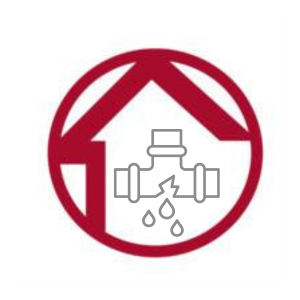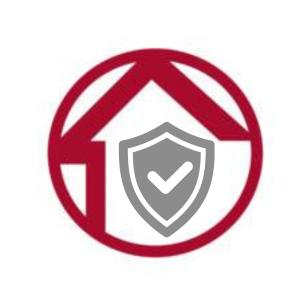11-Month / 12-Month Warranty Inspection – Protecting Your New Home Investment
You’ve built your dream home, and now you’re enjoying it! But as the first year approaches its end, it’s crucial to remember your new home builder’s one-year warranty. This warranty is designed to cover significant issues that may arise during your initial period of ownership. The 11-Month / 12-Month Warranty Inspection by Flinn Inspection Group is specifically timed to help you leverage this valuable protection, ensuring that any hidden or developing problems are identified and submitted to your builder for repair before your warranty expires.
Maximize Your Builder’s Warranty – Don’t Miss the Deadline!
When you purchase a new home, you automatically receive a one-year warranty from the builder. This warranty is a vital safeguard against construction defects, material failures, or issues that might not become apparent until the home has settled and been lived in through different seasons. Your builder is obligated to repair major items that fail within this period, but you must inform them before the 12-month warranty expires. Our 11-Month Warranty Inspection is strategically performed just before this critical deadline, giving you ample time to document and submit your claims.
What Our 11-Month / 12-Month Warranty Inspection Includes:
This service is a comprehensive, full-home inspection, identical to the thorough evaluation we perform on any new or used home. Our certified inspectors will meticulously examine every major system and visible component, identifying items that may have developed since your move-in or were simply missed in previous reviews.
Our detailed inspection aims to capture common issues that emerge during the first year of homeownership, such as:

Settling Cracks
Visual inspection for any new cracks in foundations, walls, or ceilings that may indicate settling or structural movement beyond normal expectations.

Mechanical Failures
Testing and assessment of HVAC system performance, electrical system functionality, water heater operation, and appliance function to identify any breakdowns or significant performance degradations.

Exterior Concerns
Inspection of siding, windows, doors, grading, and drainage for issues that have arisen due to weather exposure or settling.

Leaks
Detection of plumbing leaks (under sinks, around fixtures, in the water heater area), roof leaks (especially around penetrations like vents and chimneys), or signs of water intrusion in basements/crawlspaces that may have developed with weather changes.

Safety Features
Re-verification of smoke detectors, CO detectors, and GFCI outlets for proper operation.

Structural Issues
Re-evaluation of visible structural components for any new signs of stress, shifting, or concerns that might fall under warranty.

Interior Finishes
Examination of walls, ceilings, floors, and fixtures for new blemishes, operational issues, or concerns that might be covered under warranty.
Your Detailed Report for Warranty Submission:
Upon completion of the inspection, you will receive a comprehensive digital report, typically delivered same-day or within 24 hours. This report is designed to be clear, easy to understand, and actionable. It includes:
-
Detailed Descriptions:
Clear explanations of all identified issues.
-
High-Resolution Photos:
Visual evidence to support each finding.
-
Specific Recommendations:
Actionable advice on what repairs are needed and which items should be submitted to your builder’s warranty department.
This report serves as your essential tool for communicating with your builder, providing them with documented evidence of the issues that fall under your warranty.
Frequently Asked Questions (FAQs) about 11-Month / 12-Month Warranty Inspections
What is an 11-Month / 12-Month Warranty Inspection?
This is a full-home inspection performed just before your new home builder’s one-year warranty expires (ideally around the 11-month mark). Its purpose is to identify any defects or issues that have developed since you moved in, allowing you to submit them to your builder for repair under warranty before the deadline.
Why do I need an inspection on a relatively new home?
Even newly built homes can develop problems during the first year of occupancy. Settling, seasonal changes, and regular use can reveal issues that weren’t present or apparent at the time of your pre-closing inspection. This inspection allows you to utilize your warranty for repairs that would otherwise become your out-of-pocket expense.
When is the best time to schedule this inspection?
The ideal time is around the 11-month mark after you close on your home. This provides a crucial window to have the inspection performed, receive your report, and then formally submit any findings to your builder well before the 12-month warranty expiration date.
Is this inspection the same as a regular home inspection?
Yes, it is essentially the same comprehensive, full-home inspection that Flinn Inspection Group performs on any property, new or used. We check all major systems and visible components to ensure nothing is missed that could fall under your builder’s warranty.
What kind of issues typically surface during the first year that this inspection might catch?
Common issues include: minor foundation settling cracks, roof leaks (especially around flashing or vents), plumbing leaks under sinks or behind fixtures, HVAC performance issues, electrical issues that weren’t apparent initially, nail pops or drywall cracks due to settling, and issues with exterior grading or drainage.
What should I do after receiving the inspection report?
Review the report carefully. Then, provide a copy of the report and a formal letter (if required by your builder) outlining the identified items that you believe fall under your warranty. Ensure you follow your builder’s specific warranty claim procedures and deadlines.
Will the inspector tell me if something is covered by my warranty?
Our inspectors will identify deficiencies and provide repair recommendations. While we understand what typically falls under a builder’s warranty, we cannot definitively say if a specific item is covered by your unique warranty agreement. We recommend reviewing your warranty documentation for specifics and consulting with your builder directly.



